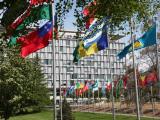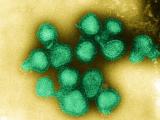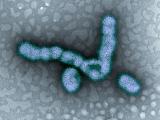Jul 2, 2010 (CIDRAP News) – An independent committee set up by the World Health Organization (WHO) to review its pandemic response wrapped up a 3-day meeting today, during which members heard testimony from widely divergent groups, from health officials to some of its most public critics.
At a media briefing following the Geneva meeting, Dr Harvey Fineberg, chairman of the group, told reporters that the committee, which is also tasked with assessing how the International Health Regulations (IHRs) functioned, is still in fact-finding mode. Fineberg, who is president of the Institute of Medicine in the US National Academy of Sciences, said the group agreed to add another meeting to take place at the end of September, though it will stick to the May 2011 deadline for submitting its final report.
The 27-member group was appointed by WHO Director-General Dr Margaret Chan and met for the first time in April. Since the last meeting, two members withdrew from the committee due to concerns about their links to the WHO during its pandemic response, which they said might complicate the independent evaluation of the WHO's actions.
Since the review committee's first meeting, the Council of Europe's (COE's) Parliamentary Assembly has endorsed a report criticizing response to the H1N1 pandemic by the WHO and European governments. In addition, reports and an editorial in BMJ (formerly the British Medical Journal) raised questions about possible conflicts of interest among the WHO's pandemic advisors due to links with pharmaceutical companies.
Fineberg said over the 3-day meeting the review group heard from Paul Flynn, a British member of parliament from the Labour Party who was instrumental in drafting the COE report and Dr Fiona Godlee, editor of BMJ. They were among several people to give 20-minute testimony. He said the committee also heard from health officials from several different countries, pharmaceutical industry representatives, and even a journalist.
He said the committee's next meeting will consist of a similar format, and he said the group hopes to hear from WHO officials, representatives from other health organizations, governmental health departments such as the European Centre for Disease Prevention and Control, and more journalists.
When questioned by reporters, Fineberg said he was struck by the chasm between the perceptions from health officials that the pandemic response worked well and the strong criticism from others who testified. He said the committee doesn't intend the proceeding to become a debate. "We're gong to have to come to a resolution in our own minds as a committee," he said, adding that the goal is to distill lessons learned from the WHO's pandemic response, not to affix blame.
Some reporters asked if the review committee would publicly post the written materials and reports that it has received and will consider in making its final report. Some groups have criticized the WHO for a lack of transparency in its pandemic response decision-making. Fineberg said the group would consider the request, but emphasized that all of the review committee's meetings have been public.
When asked about emerging themes that the group is gleaning from the testimony, Fineberg said it's clear that pandemic characterization is a big issue. Some have accused the WHO of changing the pandemic definition at the start of the pandemic, a charge it has strongly denied.
The agency has grappled with the possibility of using a severity index in its pandemic phase descriptions, because severity can vary from country to country and vary during the different pandemic waves. Instead, current pandemic definitions focus more on geographic spread patterns.
Describing the severity of the current pandemic virus has been controversial. The virus was mild for many groups, which has fed into critics' views that countries overreacted with costly stockpiles of vaccines and antivirals. However, the new virus has shown unusual patterns, exacting larger tolls on younger people and hitting some vulnerable groups particularly hard, such as pregnant women and people with underlying medical conditions.
Fineberg said the review group heard from a German health official, who suggested that in the future the WHO issue a global risk assessment and also offer threat assessments for individual nations or regions. "That's the kind of fresh thinking I hope the committee can hear," he said.
See also:
Jul 2 audio link to IHR review meeting press briefing
WHO background materials on IHR review committee



















